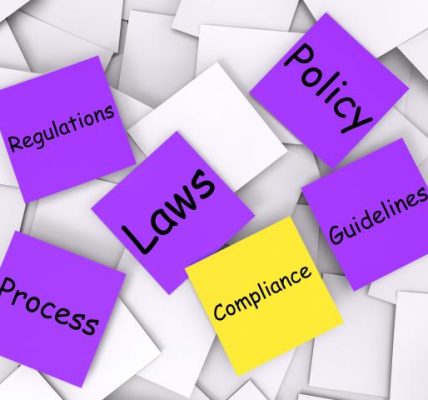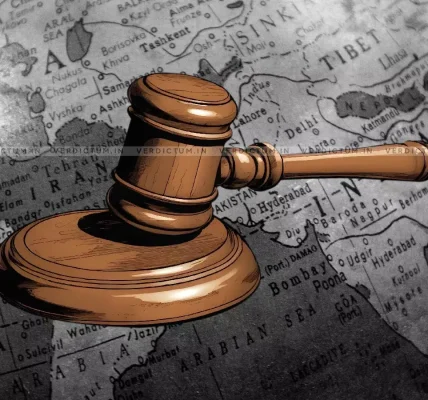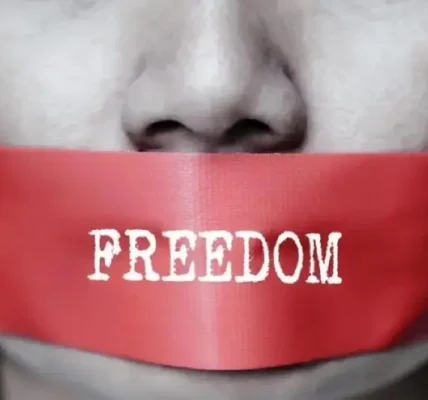Introduction
Whistleblowers are individuals who report misconduct that violates laws, ethical standards, or organizational policies. They expose issues such as fraud, waste, corruption, violations of public safety rules, environmental harm, and financial mismanagement. Without the courage of whistleblowers, countless acts of wrongdoing would remain hidden, posing serious risks to the public and organizations alike. Because their disclosures often threaten powerful interests, whistleblowers face significant risks. They may suffer retaliation, professional setbacks, harassment, or even legal threats. To mitigate these risks, numerous laws and regulations have been created to protect individuals who report misconduct in good faith.
Whistleblower protection frameworks serve two major purposes: shielding individuals from retaliation and preserving the integrity of reporting systems. Ensuring that employees feel safe to report wrongdoing ultimately creates more lawful, ethical, and transparent workplaces. This article explores these protections in detail, breaking down how they work, why they’re essential, and what rights individuals possess when stepping forward with information.
Understanding Whistleblower Rights
Whistleblower rights vary depending on the jurisdiction and the industry involved, but most systems follow several core principles: confidentiality, protection from retaliation, and access to fair legal remedies. These rights are designed to empower individuals to speak up without fear of losing their livelihoods or being punished for doing the right thing.
Who Qualifies as a Whistleblower?
A whistleblower is typically defined as any individual who reports misconduct in the workplace or within an organization. This includes:
-
Employees
-
Contractors and consultants
-
Former employees
-
Job applicants in some cases
-
Private citizens affected by organizational misconduct
Many legal frameworks require the whistleblower to report a genuine violation of law or policy. However, an individual does not need to prove wrongdoing conclusively; they only need a reasonable belief that the misconduct occurred. This protects individuals from retaliation even if an investigation ultimately finds no violation.
Types of Misconduct Reported
Whistleblowers often disclose issues such as:
-
Financial fraud or embezzlement
-
Violations of environmental safety regulations
-
Public health and patient safety concerns
-
Abuse of authority in government agencies
-
Harassment, discrimination, or workplace exploitation
-
Violations of securities or banking regulations
These categories help lawmakers structure protections tailored to different industries, ensuring that individuals who reveal high-impact misconduct are shielded from negative consequences.
Federal and State Whistleblower Protections
Many countries offer multi-layered whistleblower protections through federal statutes, state laws, administrative rules, or industry-specific regulations. These laws set guidelines for reporting, ensure confidentiality, and outline penalties for employers who retaliate.
Federal Whistleblower Laws
Federal whistleblower laws are often the strongest forms of protection because they apply across broad sectors. These laws commonly:
-
Prohibit employers from firing, demoting, or otherwise punishing whistleblowers
-
Establish supervised reporting channels
-
Offer financial compensation in certain types of cases
-
Create legal consequences for retaliation
-
Outline investigation procedures through government agencies
Federal laws typically cover issues such as securities fraud, workplace safety violations, environmental hazards, government fraud, and discrimination.
State-Level Protections
State protections may vary significantly. Some states offer broad safeguards covering nearly all employees, while others focus only on specific types of misconduct. State laws may extend protections further than federal statutes by:
-
Allowing anonymous reporting
-
Offering additional remedies for retaliation
-
Expanding protection to more types of workers
-
Creating whistleblower hotlines or statewide reporting systems
State-level laws strengthen the gaps left by federal acts, ensuring more comprehensive coverage.
Industry-Specific Whistleblower Statutes
Certain industries face unique risks that require specialized reporting protections. These include:
-
Healthcare: Whistleblowers who report billing fraud, unsafe medical practices, or patient neglect are shielded from retaliation.
-
Finance and Banking: Laws protect individuals who expose insider trading, securities fraud, or false accounting practices.
-
Environmental Regulation: Employees who report illegal pollution or violations of environmental statutes are given protections to ensure public safety.
-
Public Sector Employment: Government workers who disclose corruption, misuse of funds, or violations of government policy receive additional safeguards.
Industry-specific laws help maintain high ethical standards where public welfare is at stake.
Anti-Retaliation Measures
One of the most important aspects of whistleblower protection is safeguarding individuals from retaliation. Without these measures, employees would remain silent out of fear, allowing wrongdoing to continue unchecked.
Forms of Retaliation
Retaliation can take many forms, some subtle and others overt. Common examples include:
-
Termination or demotion
-
Reduced hours or cut pay
-
Hostile treatment or intimidation
-
Unfounded disciplinary action
-
Damage to professional reputation
-
Exclusion from opportunities or meetings
-
Threats or blacklisting within the industry
Even small actions—if motivated by whistleblowing—can qualify as retaliation under many laws.
Legal Remedies for Retaliation
If retaliation occurs, whistleblowers may be entitled to various corrective measures, such as:
-
Reinstatement to their former position
-
Compensation for lost pay and benefits
-
Damages for emotional distress
-
Attorney’s fees
-
Punitive damages in severe cases
These remedies help restore the whistleblower’s professional standing and discourage employers from engaging in retaliatory acts.
Reporting Channels and Procedures
Effective whistleblower systems depend heavily on clear, accessible reporting channels. Many laws require organizations to create safe pathways for reporting misconduct.
Internal Reporting Channels
Many employees begin by reporting through internal systems such as:
-
Human resources departments
-
Compliance teams
-
Designated ethics hotlines
-
Anonymous reporting platforms
Internal reporting can resolve issues quickly when organizations take allegations seriously.
External Reporting Options
If internal systems fail, individuals may turn to external channels such as:
-
Regulatory agencies
-
Government oversight organizations
-
Law enforcement
-
Independent watchdog groups
External reporting is especially important when wrongdoing involves senior leadership or systemic corruption.
Confidentiality and Anonymity
Many laws offer:
-
Confidential reporting, where the individual’s identity is protected
-
Anonymous reporting, where the identity is never disclosed
Confidentiality provisions encourage more people to come forward without fear of exposure.
Role of Employers in Whistleblower Protection
Organizations play a vital role in preventing retaliation and ensuring a safe reporting environment.
Employer Responsibilities
Employers must:
-
Create accessible reporting channels
-
Train employees on reporting procedures
-
Prohibit retaliation in all forms
-
Investigate allegations promptly and impartially
-
Implement corrective actions based on findings
A strong compliance culture reduces organizational risk and builds trust.
Creating a Culture of Transparency
An effective whistleblower program is built on:
-
Open dialogue
-
Ethical leadership
-
Regular training
-
Clear codes of conduct
Companies that encourage transparency are more likely to detect and address problems early.
Limitations and Challenges
While whistleblower protections are strong in many areas, challenges remain.
Gaps in Legal Coverage
Some workers, such as gig-economy participants or independent contractors, may not receive full protection. Legal reforms continue to address these gaps, but coverage varies widely by jurisdiction.
Fear of Retaliation
Despite legal protections, many individuals still fear the potential consequences of reporting wrongdoing. Cultural barriers and distrust in reporting systems are significant challenges.
Complexity of Legal Processes
Whistleblower cases can take months or years to resolve. Navigating investigations, legal claims, and hearings can be emotionally and financially draining for individuals.
Conclusion
Whistleblowers are vital to maintaining accountability across industries. Legal protections—through federal laws, state statutes, and industry-specific regulations—provide crucial safeguards against retaliation and ensure individuals can report wrongdoing safely. Although legal frameworks continue to evolve, the core purpose remains the same: to protect those who safeguard the public interest. Understanding these protections empowers individuals, strengthens reporting systems, and promotes integrity in workplaces everywhere.
FAQs
1. Can a whistleblower report misconduct anonymously?
Yes, many laws allow anonymous or confidential reporting to ensure individuals can speak out without revealing their identity.
2. What happens if a whistleblower’s claim turns out to be mistaken?
As long as the report was made in good faith and based on reasonable belief, the whistleblower remains protected even if no violation is ultimately found.
3. Are contractors or freelancers protected under whistleblower laws?
Some laws cover contractors, while others do not. Protection varies depending on the jurisdiction and the specific statute involved.
4. What should I do if I experience retaliation after reporting misconduct?
Document the retaliation, seek legal advice, and contact the relevant agency responsible for enforcing whistleblower protections.
5. Do whistleblowers receive financial rewards?
Certain laws, particularly in financial and government fraud cases, offer financial incentives to individuals who provide useful information that leads to successful enforcement actions.
6. Can whistleblowers be sued by their employer?
Employers may attempt legal action, but many whistleblower laws prohibit punitive lawsuits intended to silence or intimidate individuals.
7. How long do whistleblower investigations typically take?
Timelines vary based on the agency and complexity of the case. Some investigations resolve quickly, while others require extensive review and may take months or years.




